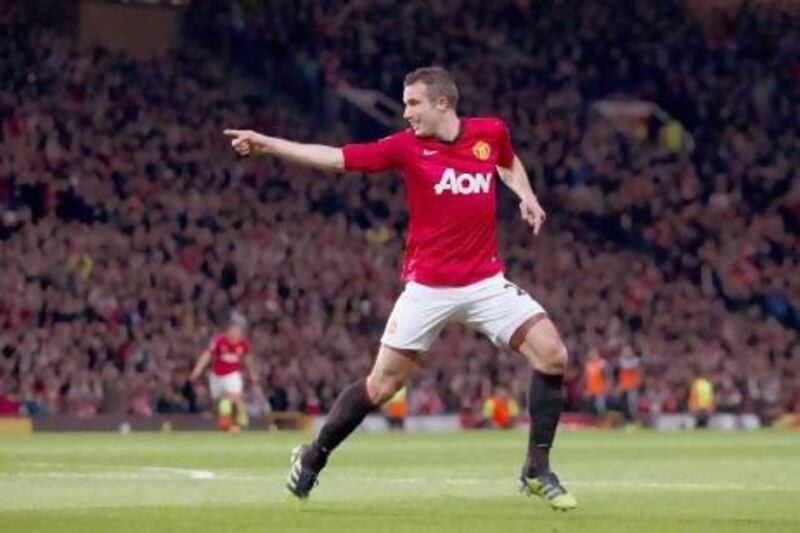Poor Robin van Persie. There is a paradox at work in English football. Players move clubs much more frequently than ever before. There is less loyalty shown than ever before - by both clubs and players.
Squads are constantly in flux and for managers the solution to almost any crisis seems to be either to bring a couple of players in or ship a few out.
And yet the overt signs of loyalty, or of respect for former clubs, seem to be taken more seriously than ever.
In the past, a player who had been a hero at one club, who had become synonymous with that team, might, having moved on, refused to celebrate scoring against them.
It was not expected, but it was appreciated as a sensitive gesture. Unless there had been something unduly acrimonious about his departure, he would be saluted by fans of his former club and would salute them in his return.
But that was the exception; for the most part players just moved on and it was accepted he would do his job professionally - albeit with the twinge of jealousy anybody would feel seeing someone they had loved in the embrace of another.
Now, it seems there is almost an ostentation about it: everybody wants to be seen to be showing respect to their former club.
At the same time, fans often seem irrationally angry at those players who have left for pastures new. Players who joined a particular bitter rival, of course, always attracted hostility, but for the most part there was an acceptance that if a player got a better offer elsewhere he would go.
The bitterness Arsenal fans seem to feel towards Van Persie, though, seems at least in part to be displaced anger against their own club. Van Persie joined Manchester United last summer because they offered him more money than Arsenal did and because going to Old Trafford gave him a better chance of winning trophies.
For fans, football is a matter of emotion and loyalty; for players, it is a profession like any other, something Arsene Wenger acknowledged.
"Robin arrived at the age of 29 and thought 'can we win the championship here or do I have to more chances to win it somewhere else?'" he said.
"There is a kind of timescale like for a woman who has no baby at 39, she starts to think, 'I haven't much time left now'. It is difficult when the player doesn't want to be here, to force him to be here and know that at the end of the season [when his contract expired] the club doesn't get anything with knowing that he might not contribute as well, so you're twice a loser."
Van Persie's return to Emirates Stadium was always going to be a fraught affair, but the timing has counted against him. United wrapped up the Premier League title by beating Aston Villa last Monday and convention dictates that the next team to play them should form a guard of honour to slate their achievement.
For Arsenal fans to see Van Persie accept that accolade from his former teammates will, understandably, be galling, and risks inflaming an already combustible situation.
Wenger, though, is adamant that the guard of honour should go ahead.
"That is part of the tradition of English football and I want that to be respected," he said. "We respect Robin van Persie like every other player who has left us and came back to the Emirates. I want the player to be respected like everybody else."
The irony is that Van Persie left for precisely the reason that Arsenal fans are frustrated: because of lack of on pitch investment and development means that there is little hope of a league title challenge in the near future.
The cycle is self-perpetuating: Arsenal's best player left because their best players were leaving. Arsenal fans perhaps have a right to be angry about that, but there seem more appropriate targets for their frustration.
Follow us
[ @SprtNationalUAE ]





